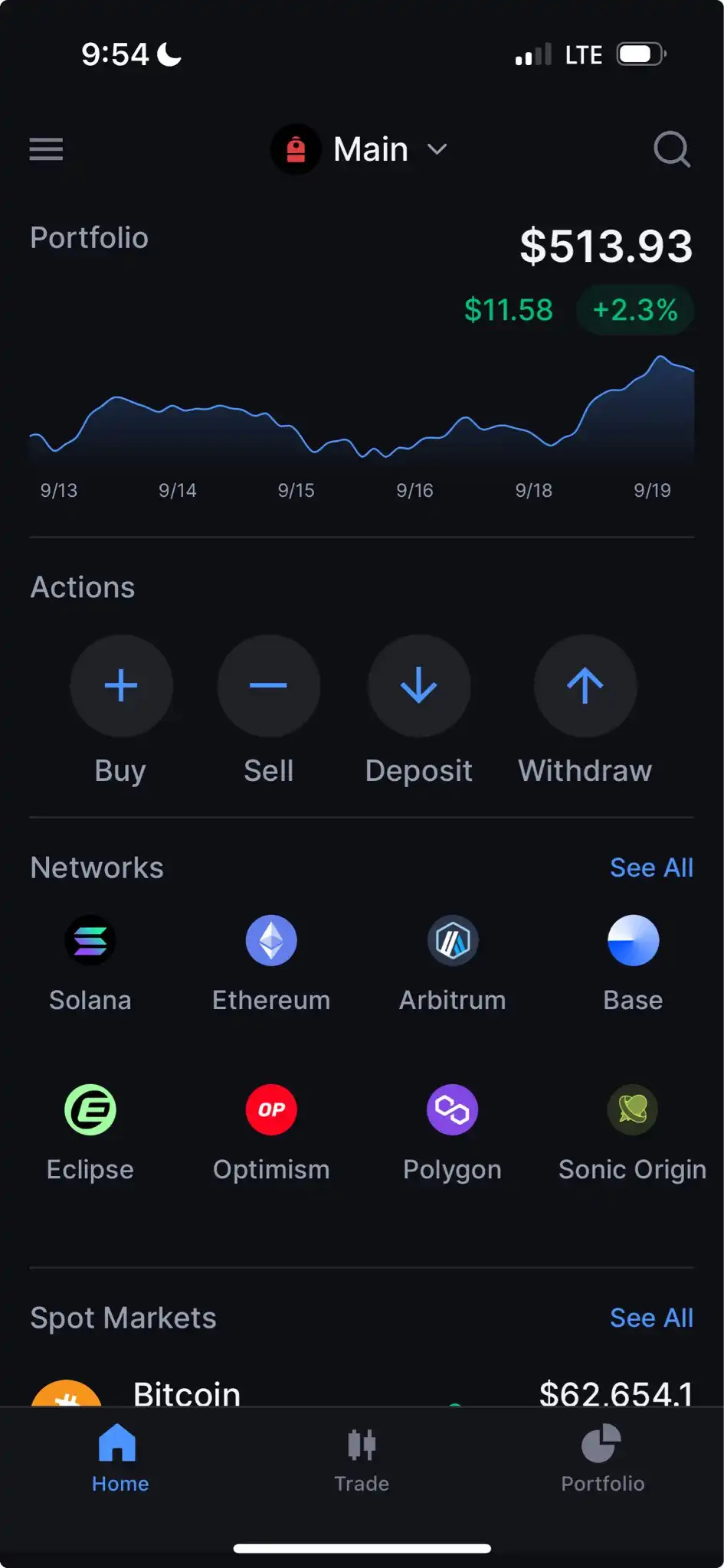Crypto Technology Will Eventually Dominate Finance: Interview with Backpack Founder Armani Ferrante
An Exclusive Interview during Solana Breakpoint
During Solana Breakpoint Conference, Web3Brand (Ruby & Star) had the privilege of conducting an exclusive 40-minute interview with Backpack founder Armani Ferrante. Some questions were quite direct, such as those about competition with CEXs and DEXs. Armani's immediate response was "Great Question, I love it!" He shared his thoughts on competition, product development, and user growth with remarkable candor, offering truly insightful perspectives.
Here's the full interview:
User Acquisition and Unique Positioning
Web3brand: It all started from the very passionate communities, then we have the wallet and exchange. What’s the plan for acquiring more users?
Armani Ferrante: It all comes down to building the best product that we can build. And I think a lot about the opportunity cost of capital. I think a lot about how we objectively make it such that Backpack is the optimal place for finances. whether it's dollars in UDST or USDC, whether it's crypto native assets like SOL, Bitcoin, Ethereum, whether it's memecoins on Solana or anywhere else, whether it's connecting to Dapps like Jupiter, Tensor, Drifts, Kamino and having a genuine Super App where people can access not only the crypto economy, but also the crypto economy, all in a single place, in a way that's safe, secure, fun, exciting, and really solves for a lot of these hard user experience problems that most people really haven't tried to solve.
*Ruby's Note: Having tested Backpack's updated mobile CEX experience, I found it quite distinctive. Accessing the CEX through your wallet creates an interesting fusion where the boundary between decentralized apps and centralized trading platforms becomes remarkably fluid.
If you take a look at most apps, they treat the exchange and the wallet as very different things. They're almost like parallel apps in some cases or separate apps, or in some cases, they don't even try to build a wallet. For us, it's all about bringing these two experiences together in a harmonious way such that we can move all from and not separate the crypto economy from the main economy, but to merge them into one.
I think one of the most helpful things for us—and something that will continue to be valuable—is that we’ve been with Solana from its early days, riding the wave from $8 to $200 and back down to where it is now. A lot of the feedback we've received from our users is that they come to Backpack specifically for Solana. Many exchanges have overlooked Solana, but it's always been a core part of our story since we joined the network in early 2020. Some of the best projects on Solana launched around the same time we were starting the exchange, and we’ve done a solid job of establishing ourselves as a gateway to the Solana network. We hope to keep playing that role in a way that benefits the broader ecosystem.
Ideology Behind Being a SuperApp
Web3Brand: On the Empire podcast, you mentioned that platforms like Coinbase have separate apps for exchanges and wallets. In China, we’re seeing a trend with exchanges like Binance and OKX building Web3 wallets into their apps, aiming for that SuperApp experience. How does Backpack’s approach differ?
Armani Ferrante: I think the key difference is that most platforms think of the crypto economy and centralized exchanges as separate things. They’re almost like parallel universes, and that shows in the app design. We’re taking a different approach —trying to blend them together.
In the future, you should be able to log in with the same credentials, use 2FA, and access not only your trading portfolio but also your wallet — all in one place. This will require some innovations on the technical side, like account abstraction. For example, we’re working with the Squads team on Solana, who are building smart accounts. Instead of your public key owning the assets directly, the smart contract does, and you control the smart contract. This is the future. Nobody has really done this in the right way yet, but we’re working on it. There’s still a lot of engineering to do to bring the on-chain user experience to the level we need, but we’re getting there.
Web3brand: So in Backpack, do the Wallet and Exchange teams work together?
Armani Ferrante: Yeah. I’ll give you a sense of how we’re structured. You mentioned some exchanges have hundreds of people on their wallet teams, while we have less than 10 in each product. We have three products: the extension (wallet-only), the web app (exchange-only), and the mobile app, which combines both. We’re a very small, fast-moving, engineer-driven team. We don’t have product managers — I'm the only one. Everyone has deep ownership and respect for the product. That’s why we can move fast and think about everything in a much more integrated way.
CEX vs. DEX
Web3Brand: Recently, decentralized exchanges have been adding mobile apps and FIAT onramps, moving closer to centralized exchange experiences, especially on Solana with its low gas fees. What’s your view on this trend?
Armani Ferrante: It's a subtle question. So the short answer is that I love it and that it's really good for us. I think fundamentally, centralized exchanges and wallets have no business if the on-chain economy isn't forever growing, and so we want to grow. Their success is our success. And so I wholeheartedly believe that. We are not trying to compete with decentralized exchanges. What we're trying to do is, on the one hand, provide a portal into all of them through the wallet, but on the other hand, solve all the hard traditional problems that none of them are solving. Finance, by itself, is not valuable. It's not useful in a vacuum, finance and accounting and DeFi and all these things are only useful if you have real world goods and services that the finance technology is rooted in. You need the real world. But in order to operate in the real world, you have to follow the rules of the real world. We shouldn't just stop at crypto-native Assets. We should take over all of traditional finance and improve the entire financial system together. And so we are trying to fill that role for the market where we cannot really build really great products and really great exchange and really great wallet and gateway for Dapps, for people to use Dapps, but we can also go to the traditional economy and start becoming something that looks not exactly like a bank, but kind of like a bank, not exactly like a brokerage, but kind of like a brokerage. Put this new, very crypto native thing that merges the two economies into one and makes it the best possible place to own your finances. And I think there will be this generational turnover where, you know, why are we using this kind of old, somewhat archaic, opaque financial system? When was the last time you used the banking app and you were excited? There's no Instagram or Tiktok level consumer experience for mainstream consumer finance. So we fill a very different role than any of DEXs. And I hope what we can do is to make the DEXs more valuable by bringing these assets in a compliant way on chain. And I want people to use decentralized finance inside of Backpack and as well. So if that grows, we grow, so you can connect to any Dapps with your self-custodial wallet.
Thought on Stablecoin
Web3Brand: Is there any plan to go into the stable coin business?
Armani Ferrante: The stable coin business? That's a great question. I would argue centralized exchange is one of the best, most important partners for stable coins. The short answer is, we're not thinking about it right now. I think we have enough wood to chop. I'm happy to partner with stablecoin issuers. No immediate plans, but we are looking to partner with stablecoin insurers, because I think it's one of the most important pieces of technology and use cases for crypto.
5 Years From Now
Web3Brand: Five years from now, what will backpack become ?
Armani Ferrante: I hope crypto is in the hands of everybody, as many people in the world as possible. I think that's an inevitability. I think it's only the function of time, the function of humans solving hard problems, technological improvements, product improvements. And, to be frank, generational turnover, younger folks coming into crypto is very natural to them. It makes sense. You know, whether it's millennial Gen Z, Gen alpha, so it's our generations, you know, grow older and become a larger percentage of the world. Crypto proliferates more and more and more until eventually all finances are using crypto in a meaningful way. And so in that world, you know, we can be part of that, be part of that growth, part of those products, part of the people that are evangelizing it, solving the problems and hopefully changing the world. I think the world of finance looks quite different, and the teams that are there to usher in that era will help to kind of reshape the fabric of all this infrastructure and so, you know, I think being your primary financial service provider is ultimately the end goal.
Chinese Version: 专访Backpack创始人Armani:加密技术终将主宰金融领域






